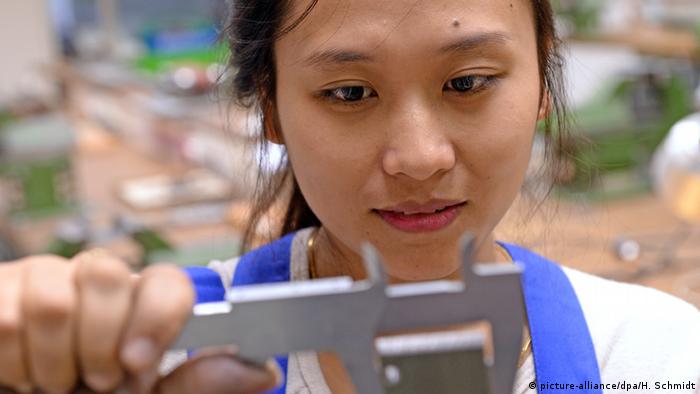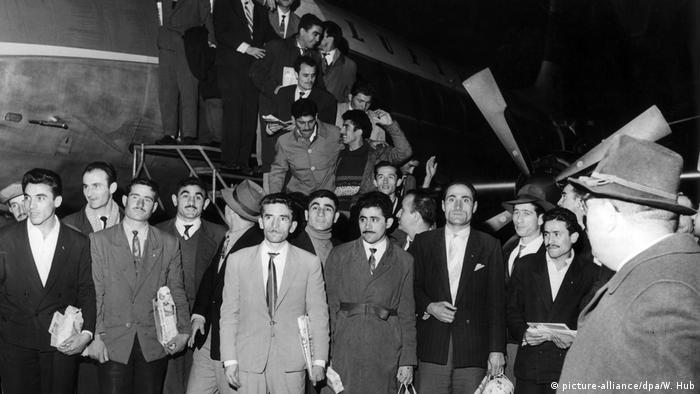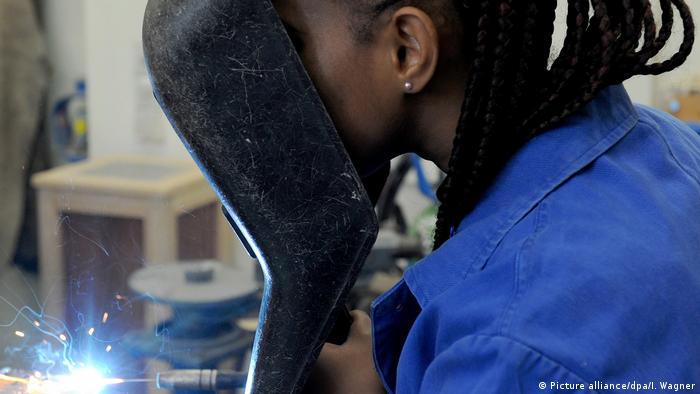The Federal government is planning an immigration bill to allow foreign professionals to come more easily to Germany. Already there is dispute about whether the rules should also apply to rejected asylum seekers.

For 20 years, it is argued, discussed, fought about it: an immigration bill. Now it is to become a reality. A first draft is on the table, a key issues paper, prepared by three ministries: The ministries of Interior, labour and business have agreed on points, the immigration of skilled workers from abroad to facilitate. For Germany, a lack of labour force, according to the economy 1.6 million. Therefore, much approval for the design comes from there: it was a positive Signal to the enterprises and to foreign experts, it was said by the President of the DIHK (Deutscher Industrie – und Handelskammertag), Eric Schweitzer. Now the law needs to be develop so that “the farms are in urgent need of setting the needed skilled workers from abroad.”
Immigration Country Germany?
Germany is a country of immigration? Yes, especially the greens and the SPD, no, it’s conservative parties. Immigration in Germany since years a very controversial topic. And, therefore, a ready-formulated immigration law is still a good piece of work. German Chancellor Angela Merkel says: “For us, this is politically a delicate box.” Because people would have to come, wanted to permanently work in Germany and would be needed in ten years ‘ time. On the subject of immigration, the Chancellor, need it is a blend of “bold” and “thinking”. Especially in her own party, the CDU, were it but for a long time reservations.
Guest workers for the German economic miracle
In the 50s and 60s, the German “economic miracle” and needed the companies in this country work forces. In a large scale, the Federal government began, workers abroad to recruit. Especially cheap labour for Assembly line work were welcome. Million came from Italy, Greece, Turkey – so-called “guest workers”. A long-term concept but lacked. Since then, there will be a dispute in Germany about immigration.

Time: Turkish “guest workers”, a meeting in 1961 in Düsseldorf, Germany. Of immigration, there was no question.
In 1973, the Federal government imposed a recruitment stop for foreign workers. Set in the year 2000, the then SPD-led Federal government wanted to get a Green Card for all IT-specialists to Germany. Since then, the policy works on the theme of labour migration and immigration.
Transparent and clear
The current Federal government of CDU/CSU and SPD had agreed in February in its coalition agreement to create an immigration law. In the draft it is now called, the schemes should begin “at the skilled workers our economy” needs, everything is transparent and clear. Some of the restrictions are to be abolished: So that has had to be in a so-called priority check to ensure that local candidates for a job would be preferably adjusted. In addition, foreign workers should be allowed to immigrate forces only for well-defined “bottleneck” occupations. The SPD has set a requirement now by: It may in the future also people to Germany, which have not yet been accepted for a Job. A year and a half you have time in the future, to seek in Germany a place, as Minister of labour, Hubertus Heil: “It should also be possible, that you could operate the bureaucratic formalities, the recognition of professional qualifications questions, and the like – also in Germany.” This could accelerate the process considerably.
The dispute around the “lane change”
But still the ideas for the exact wording of the immigration law are very different. The Prime Minister of Schleswig-Holstein, the CDU-politician, Daniel Günther, brought the term “lane change” in the debate. This means that rejected asylum seekers could have a Chance, work immigrate forces legal. The Chancellor, however, is skeptical. Government spokesman Steffen Seibert said: “There are different rules for immigration for humanitarian reasons and for labour”.

Also rejected asylum seekers, regular labour?
The SPD’s support for the “changing lanes”proposal comes in. As Secretary-General Lars Klingbeil says: “It can’t be that hard-working nurses, or artisans from their Farms to be torn and deported.” For well-integrated and who – so rejected asylum-seekers may remain in Germany for humanitarian reasons – to offer a lane change, a permanent perspective. The Saxony-Anhalt interior Minister Holger Stahlknecht: “We have a number of asylum-seekers, the life is tolerated in Germany, for several years, some of which are well integrated, fluently speak our language, they have qualified to stand in this time, and also in work, because you have to allow a lane change.” By contrast, his party colleague Stephan Harbarth says the parliamentary group of the CDU/CSU reject a lane change is clear: “in Particular, is to be welcomed that the lane change is a part of the vertices.”
Details until the end of the year
Trade unions and opposition parties to criticise the white paper: More transparency does not come into the scheme in the jungle, criticized the DGB-Board member Annelie colorful Bach. The FDP is missing a points system according to the examples of successful countries of Immigration, and the right-wing populist AfD is afraid of, it was a “another back door for immigration into the social systems”. The Left is worried that skilled workers in other countries were missing, when Germany headhunting. Positively, however, the Green react: the Union parties would have “fought back, and bullheaded”, by contrast, doggedly, that Germany is an immigration country. It was good, “that the remnants of the ideological blockages seem to be in the Federal government now has the realism to soft”.
Such blockages should not be mined but still. Individual points, the parties are to struggle in the coming months. Until the end of the year you want to agree on a law.